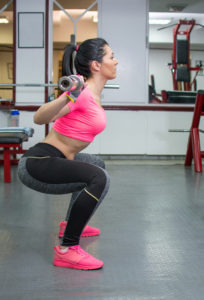“Athletes who move better have the potential to improve over athletes that have a movement screen that is poor or shows significant asymmetries” – Todd Arnold
Do you move properly? Could you be performing better?
How do you know? How can you find out?
Qualified therapists can efficiently assess movement to identify dysfunction and asymmetries using two different screening tools:
The Selective Functional Movement Assessment (SFMA) is a full body screening tool that involves performing certain movement patterns and then systematically breaking down any dysfunctional or painful movement patterns. The SFMA is used when pain is present in some form during activity. It is designed to systematically find the cause of symptoms, not just the source.

The Functional Movement Screen (FMS) is used when no pain is present. It is another screening tool designed to identify limitations or asymmetries in 7 fundamental movement patterns that are key to functional movement quality. This screen places the person in extreme positions where weaknesses and imbalances become noticeable.
The SFMA/FMS screens can assist any competitive or recreational athlete whether or not they have an injury. The screens can help to identify movement dysfunctions to help decrease the risk of injuries in the future or identify where the pain is coming from to treat efficiently and effectively. More specifically;
For those just starting a training program:
The SFMA/FMS screens are a great way to assess your current level of mobility and stability. It can allow us to identify asymmetries and movement dysfunction and allow us to tailor a training program that minimizes the risk of injury.
For Average Joes training in the gym:
If there is an exercise, that you cannot seem to be able to improve upon, whether it be in strength or flexibility, the screen can help us identify deficits that may be causing this roadblock. By being proactive and identifying dysfunctions, you can be more efficient in your exercise routines in addition to decreasing your risk of future injury.

For Competitive Athletes:
Athletes need proper squatting and landing mechanics to help combat injuries, as well as to decrease stress on the knee and ankle. The FMS/SFMA can break this movement down to identify any deficits and address the dysfunction before it becomes a problem. Also of great importance for athletes, the screens can identify if there is a lack of active core or lumbo-pelvic control issues that may be contributing to faulty movement patterns or pain. For example, gymnasts and dancers often use their hyper-flexibility to achieve the required movements. By isolating in the FMS/SFMA, we can identify how quickly the athlete is able to achieve spine stability before moving extremities. In additional to decreasing your risk of injury, by improving your control you may be able to further advance your skills. The FMS/SFMA also identifies side-to-side asymmetries, developed by being one-side dominant with certain movements such as tumbling passes. Correcting the imbalance can help improve other skills that require more symmetry.
At Resolve Physio and Wellness, we strive to help you decrease your risk of injury, restore function and overall enhance your performance. If you are interested in booking your own FMS or SFMA screen, contact Brittany, our SFMA trained Physiotherapist at (780) 395 – 9170. We can also provide top tier screens for your whole gym/team if required.
Resolve to move better. Resolve to perform better. Resolve to live better.
